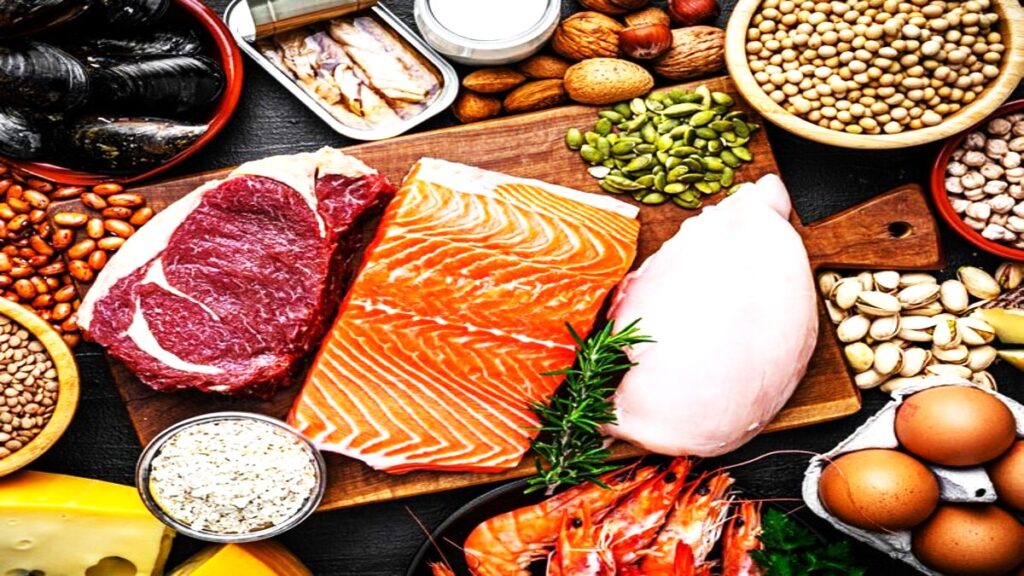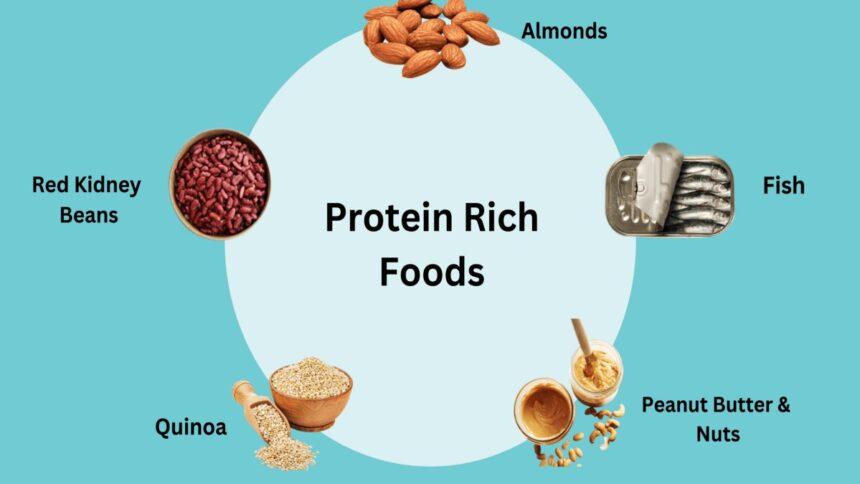To maintain optimal health, our bodies require a balanced intake of essential nutrients, and one of the most vital is Protein-Rich Foods. This macronutrient plays a crucial role in numerous bodily functions, and insufficient protein can lead to various health issues. In this article, we will explore the importance of protein, its key functions, and a variety of protein-rich foods that can help combat fatigue and weakness.
Why is Protein Essential?
Provides Energy
Protein serves as a significant energy source, particularly when carbohydrates and fats are in short supply. During periods of intense physical activity or calorie restriction, your body can break down protein to meet its energy needs.
Builds and Repairs Tissues
One of protein’s primary roles is in the building and repairing of bones, muscles, and tissues. This function is particularly vital for children, teenagers, pregnant women, and athletes, who require higher protein levels to support growth and recovery.
Supports Immune Function
A robust immune system is essential for warding off infections and diseases, and protein is key to maintaining its effectiveness. Proteins aid in the synthesis of antibodies and other defense-related immune system components.
Enzymes and Hormones Production
Protein is fundamental in synthesizing enzymes and hormones, which regulate various physiological processes in the body. These include metabolic functions, growth, and mood regulation, showcasing the diverse roles of protein in overall health.
Best Sources of Protein
Many foods are rich in protein, offering a variety of options for different dietary preferences. Below are some of the best sources of protein you can incorporate into your daily meals:

1. Meat
Meat is an excellent source of high-quality protein. Options like chicken, turkey, and mutton provide ample protein per serving. Lean cuts of meat can be included in various dishes, from stir-fries to roasts, making them versatile and nutritious.
2. Eggs
Eggs are often referred to as a “perfect” protein source because they contain all nine essential amino acids. Each egg provides about 6 grams of protein. Incorporating eggs into your diet can be as simple as having them scrambled, poached, or in an omelet, and they can also bolster your immune system.
3. Dairy Products
Dairy products are not only rich in protein but also provide calcium, essential for bone health. Foods such as milk, yogurt, cheese, and buttermilk are great options. They can be consumed alone or added to smoothies, salads, and various recipes.
The Risks of Excessive Chia Seeds Water Consumption: What You Need to Know
Know more 👇🏻 #chiaseeds #chia #CHIA #Health #healthandsafety #HealthcareForAll#HealthAndWellness #HealthyFoodhttps://t.co/kKSg2eD0ee via @TIMELESS NEWS NOW
— Timeless News Now (@timelessnewsnow) September 9, 20244. Legumes and Nuts

Legumes and nuts are fantastic plant-based sources of protein. Beans, lentils, chickpeas, soybeans, almonds, cashews, and walnuts not only deliver protein but also supply fiber, which aids digestion. They can be added to salads, soups, or eaten as snacks for a nutritious boost.
5. Seafood
Seafood, including fish, shrimp, and crab, is another excellent protein source. Fish such as salmon and tuna are particularly beneficial because they are rich in omega-3 fatty acids and essential minerals. Incorporating seafood into your meals can enhance your overall nutrient intake and provide heart-healthy benefits.
How to Include Protein in Your Food
To ensure you’re getting enough protein, consider the following tips:
Plan Balanced Meals
Every meal should aim to contain some form of protein. For instance, pair grilled chicken with vegetables and quinoa or add chickpeas to your salad for an extra protein punch.
Snack Wisely
Choose protein-rich snacks like Greek yogurt, nuts, or a hard-boiled egg. These choices can assist you in sustaining your energy levels during the day and avoiding slumps in the middle of the afternoon.
Explore Plant-Based Options
If you’re following a vegetarian or vegan diet, focus on incorporating a variety of legumes, nuts, seeds, and whole grains. Foods like quinoa and tofu can help ensure you’re meeting your protein needs.
10 #Vegetables That Help Reduce Belly Fat Quickly: A Guide to Slimming Down#weightlosstips #weightloss #HealthyHabits #healthy #foodblogger https://t.co/b0znepIZUg via @TIMELESS NEWS NOW
— Timeless News Now (@timelessnewsnow) August 26, 2024Stay Hydrated
While focusing on protein intake, don’t forget to drink plenty of water. In addition to being beneficial for overall health, enough hydration can help with nutritional absorption and digestion.
Incorporating protein-rich foods into your diet is essential for maintaining strength, energy, and overall health. Whether you prefer meat, eggs, dairy, legumes, or seafood, there are plenty of options available to meet your protein needs. By making conscious choices and planning your meals, you can combat fatigue and weakness and support your body’s various functions. Remember, a balanced diet with sufficient protein not only fuels your body but also enhances your vitality and well-being. Embrace these protein-rich foods and feel the difference in your energy levels and strength!
Read More: The Importance of Omega-3 Fatty Acids for Heart and Overall Health






